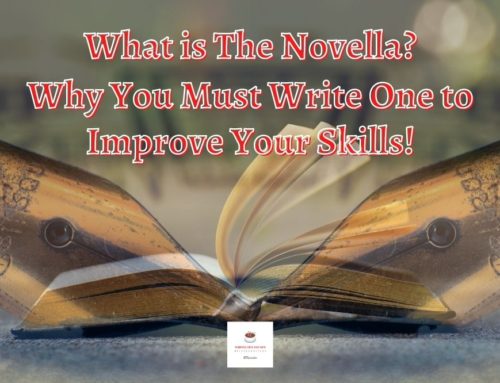If you’re anything like me, you’ll often find it hard to find the motivation to write. Everything else sounds more fun. I’m currently obsessed with Call of Duty: Zombies, and I want to complete an easter egg on at least one of the maps before the year ends. I also want to write two different books and a weekly blog article.
But what does that have to do with writing?
It is a distraction that calls me away from my writing. It’s not inherently wrong if I use playtime as a reward for getting work done, but it is a problem when I’m playing instead of writing. The question becomes, “how do I stay motivated in a world filled with distraction?”
The answer is self-discipline and having the tools to keep yourself motivated, such as: building a writing routine and sticking with it, using meditation and other pre-writing rituals to clear your mind – accessing your “flow-state,” and finding skills to help you concentrate on your writing time. Rewarding yourself for your hard work is the best tool of all.
By tuning these skills and eventually mastering them, you’ll be able to finish any project promptly. Take control of your motivation as only you have the power to tell your stories.
Finding and Sticking with a Writing Routine:

Ask any writer how to stay motivated, and almost all of them will tell you to write every day. The more you write, the better you get. Makes sense! Though I know that maintaining a writing routine is not possible for every writer.
We run busy lives, and often our personal lives get in the way. Things happen, and you get a disruption in your schedule. It happens, and that is okay.
The goal is to make a habit out of writing. It is helpful to set a time and place to write and treat it like a job. However, things happen, and don’t be hard on yourself for missing a day. You always have tomorrow to try again.
For more tips on building a writing routine, click here. Today, I want to focus on how sticking to your routine makes it easier to stay motivated. The practice and habit place your brain in a space where it needs that time to feel complete.
Writing becomes a part of your day, and the words flow smoothly at that time.
It’s muscle memory.
Often, having a notion that writing needs to be perfect gets in the way of writing. You plan this fantastic story and expect the final draft to just appear on the page, and then it doesn’t. You feel discouraged and lose your motivation.
To stay motivated, allow yourself to write crappy. Get the words on the page. Grammar, spelling, syntax… it doesn’t matter. You can edit later. Feel comfortable, just writing.
Pre-writing Rituals:

When entering a writing session with a clouded mind, I find it impossible to get words on the page. I have no motivation. I’m thinking about what I’m going to eat later, how to get the wonder weapon in zombies most efficiently, and how to plan my fiancee’s birthday coming up.
None of that is relevant to the project at hand.
First, I’ll meditate to clear my mind. I go into more detail about the benefits and how to meditate here. Still, it’s important to note; meditation is a crucial skill for the aspiring writer. Taking a moment to clear your mind is the difference between writing 50 words in an hour and writing 1000 words. I’ll take five to ten minutes where I focus on my breath, witnessing my thoughts, and let go.
Next, I’ll usually put on a writing playlist. For me, music helps me focus. It places my mind in the mood for writing, and it helps the words flow naturally onto the page. With the proper playlist, I can write without distraction. I’ll forget about the world around me and enter my “flow-state.”
The “flow-state” is essentially stream-of-consciousness writing. It is allowing yourself to write without judgment. The words sail from your mind to the page effortlessly, and it is amazing. Play around with different music and technique to find what best brings you into that state.
Lastly, when having trouble finding your motivation, try writing prompts. Use the characters from your work-in-progress or go into your own emotions and feelings – explore your past. Often in writing something else, ideas pop-up for your current project.
Motivation Finding Skills

My due date is fast approaching, and I need to get the latest article done. It’s Saturday night, and I have an hour and a half before it’s time for bed. I need to buckle down and write.
The goal is not to get to this point.
Setting up deadlines is a tool to help you stay focused and motivated on your project. You can set yourself goals and break your task into smaller, manageable pieces. By dividing your time, you give yourself space to slowly finish your writing over time rather than doing it all at once.
Another plus is more opportunities to reward yourself for a job well done.
Writing Sprints are another fantastic tool for finishing your work and what I turn too when I need to get a rough draft done quickly. I found this cute writing tool at mywriteclub.com, where I participate in writing sprints with other community writers. The time starts every half hour for 25 minutes with a 5-minute break between each sprint.
You can see the other writers’ word counts in the room and see how you compare, or you can hide the social aspect and freely write. I often finish my articles in two and a half cycles of these sprints and then edit them later. The timer motivates me to focus on my project and get the words onto the page.
Lastly, when I find myself stuck on a section, I will jump to a different section within my project. Writing my novel, I often find myself stuck on a chapter; often, the quickest fix is to jump to a separate chapter or change perspective. It allows me to see my narrative with a different lens.
Reward Yourself!:

I finally finished my writing for the day, got a ton of words on the page, and feel accomplished. Now, it’s time for my next attempt at the easter-egg. I earned it.
As humans, we are attracted to having fun and doing unproductive things. For some, that can be watching their favorite tv show, others it’s a hike on the beach. However, if that is all you do, you won’t get anything done.
I find rewarding my writing session with a hobby is an excellent way for me to maintain my motivation. After I finish my session, I know that I can give my brain its daily dose of dopamine, and it feels right for having completed the work.
However, suppose you reward yourself first (as I found out the hard way). In that case, your motivation to write for the day will dissolve away, fading into nothing. You prematurely gave yourself your reward, and now the work seems tedious and unrewarding.
Give yourself mini rewards for completing your tiny tasks and a bigger reward for finishing all of your daily goals. When participating in the writer’s sprints, I will reward myself during a 5-minute break with a YouTube video. Once I’m done for the day, I will play zombies with my fiancée.
Conclusion:
Self-motivation is often hard to find, but with the right tools, it becomes infinitely more accessible. Building a routine helps to overcome writer’s block over time. However, it takes a while to build that consistency. Trying to stick to a schedule is your best bet, and don’t be hard on yourself when you miss a day. It takes practice.
Find pre-writing rituals that help get you in the mindset to watch. I meditate, and reading a book is equally useful. Though I find reading before writing messes with my writer’s voice, and I sound like the author I just read. Watch out for that. Or use it.
Lastly, reward yourself for finishing your writing for the day. You worked hard and defeated your lack of motivation. You deserve that dopamine!
If you have any questions, comments, or concerns, feel free to leave them below. Also, how do you keep yourself motivated to write? Share your answers with me!
If you enjoyed this content, consider becoming a writing bean and supporting Writing Tips and Sips!
Additional Resources:
Diane Callahan – How to Motivate Yourself to Write Everyday
C. D. Baron
Latest posts by C. D. Baron (see all)
- What is The Novella? Why You Must Write One to Improve Your Skills! - 03/21/2021
- Wake Up! A Short Story (Work in Progress) - 02/07/2021
- My Top 5 Favorite Reads of All Time (So Far) - 01/24/2021






These are really good ideas. I’ve not written a post for weeks, I do lack motivation.